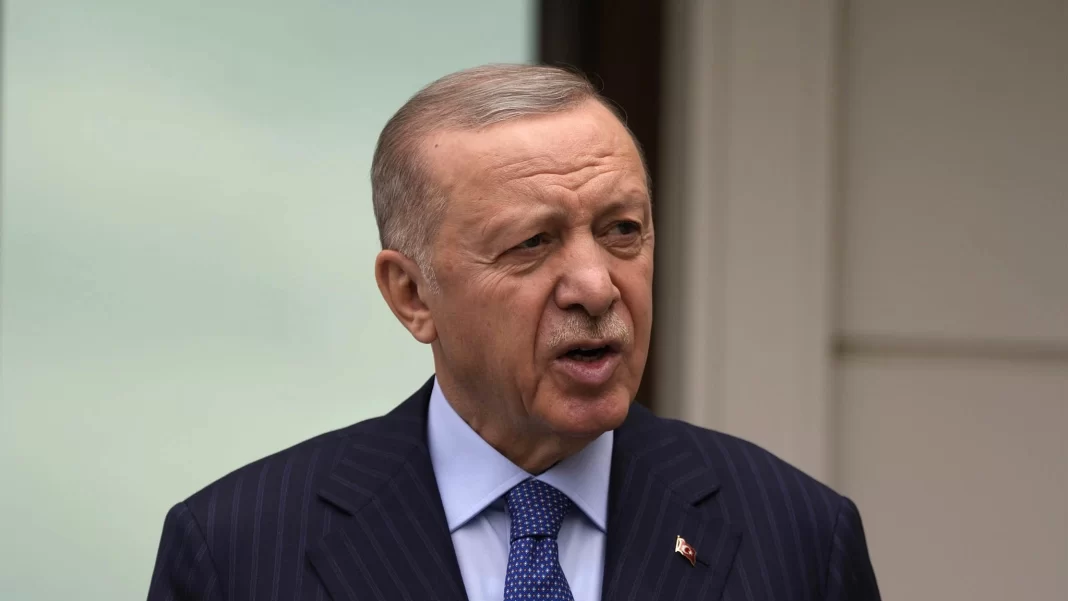Turkey’s President Recep Tayyip Erdogan’s stern ultimatum to Kurdish militias in Syria on 25 December, demanding they either surrender their weapons or face destruction. This escalates tensions in a region already fraught with conflict and competing interests.
Turkey’s Warning to Kurdish Militias
Erdogan’s declaration signals Turkey’s intent to intensify its military actions against the Syrian Democratic Forces (SDF), a US-backed Kurdish militia. The SDF, primarily composed of People’s Protection Units (YPG), is regarded by Ankara as an extension of the Kurdistan Workers Party (PKK).
The PKK has waged a decades-long insurgency against Turkey and is classified as a terrorist organization by Turkey and other nations.“We will fight all terrorist groups exploiting Syria’s turmoil,” Erdogan stated, emphasizing Turkey’s determination to eliminate threats to its national security.
Clashes Escalate in Northern Syria
Ankara’s proxies, the Syrian National Army (SNA), have launched operations against the SDF in key areas, including Kobani (Ain al-Arab). Turkish airstrikes have supported these offensives, further intensifying the conflict. Turkey’s Defense Ministry reported killing 21 Kurdish fighters in operations spanning Syria and Iraq last week.
The SNA comprises various armed factions, some with extremist affiliations, and played a central role in the recent offensive that led to the collapse of Bashar al-Assad’s government in December. This coalition has been pivotal in Turkey’s strategy to counter Kurdish influence in the region.
Impact on Kurds and Other Ethnic Minorities
The Kurdish population in Syria faces renewed threats under the new transitional authority led by Hayat Tahrir al-Sham (HTS). Although the HTS government has vowed to protect ethnic and religious minorities, reports of persecution against Kurds, Christians, and Alawites have emerged. These incidents raise concerns about the safety of vulnerable communities under the new regime.
Despite assurances, the HTS leadership has labeled such attacks as isolated incidents. But the situation for religious and ethnic minorities remains precarious, with many displaced or living under constant fear.
Erdogan’s Engagement with Syria’s New Leadership
Turkey has also begun dialogues with Syria’s transitional leadership to address long-term stability. Erdogan announced plans to support the drafting of a new Syrian constitution and pledged assistance in rebuilding the war-torn nation.
“Syria cannot rebuild alone and requires the Islamic world’s support,” Erdogan said, signaling Turkey’s ambition to play a leading role in shaping Syria’s future.
Regional and International Implications
The ongoing conflict in northern Syria highlights the complex web of alliances and rivalries in the region. The United States continues to back the SDF, utilizing the group to maintain control over Syria’s oilfields. However, Turkey has consistently called for an end to foreign support for Kurdish militias, viewing it as a threat to its security.
Meanwhile, the SDF’s ties with the US have strained relations between Ankara and Washington. Turkey’s increasing military presence in Syria also raises questions about its broader regional ambitions.
The Future of Syria’s Stability
As Turkey ramps up its operations against Kurdish militias and engages with Syria’s new leadership, the future of the region remains uncertain. The fragile dynamics between the HTS government, minority groups, and external powers like Turkey and the US could lead to further instability.
Efforts to create a new Syrian constitution and rebuild the nation will require cooperation among various factions. But the deep-rooted divisions and competing interests make achieving lasting peace a formidable challenge.
Turkey’s actions and Syria’s transitional government will play pivotal roles in shaping the next phase of the region’s history. Whether these developments lead to stability or further conflict will depend on the willingness of all parties to prioritize peace and coexistence.

